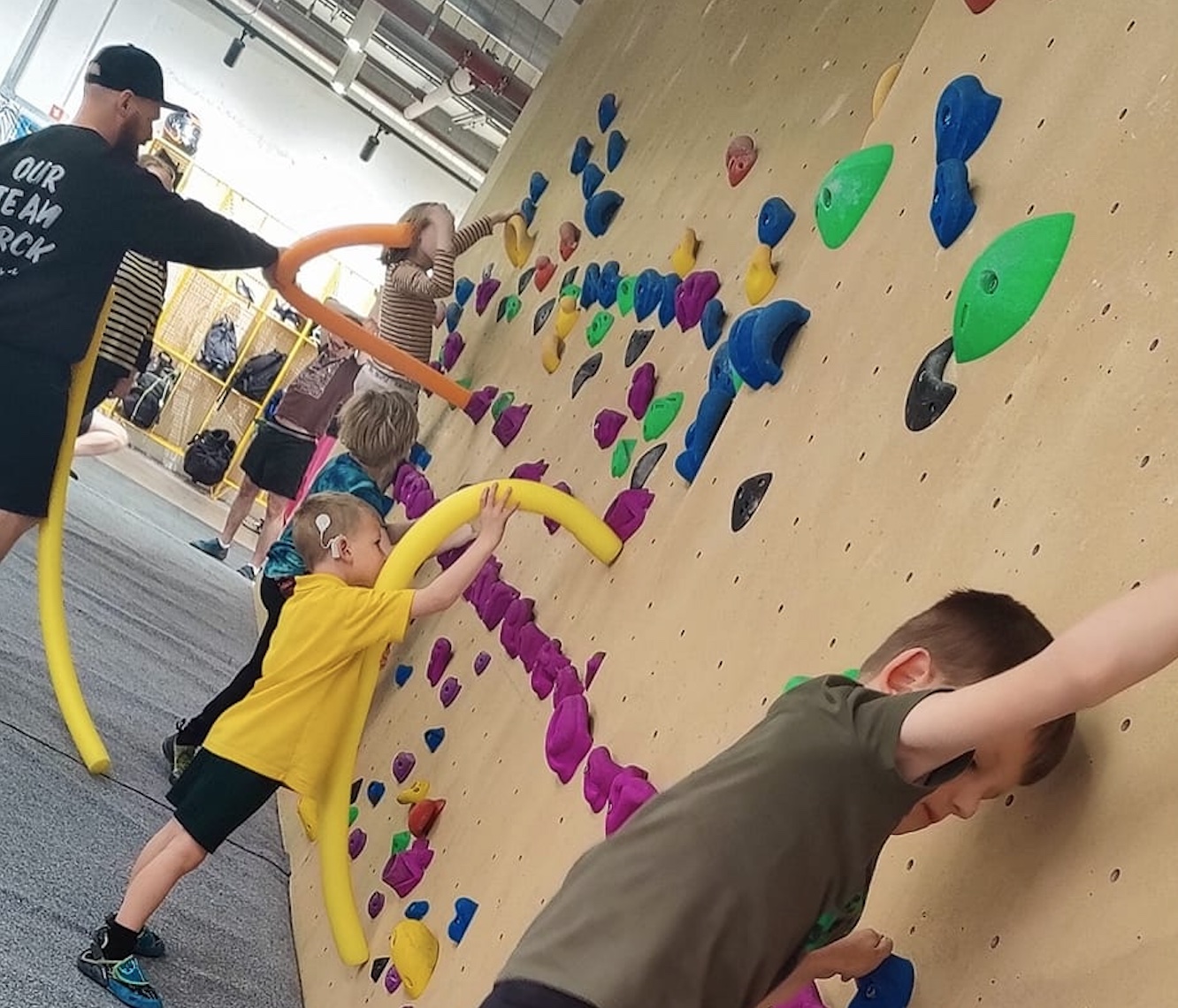
29 Jul Benefits of Bouldering for Neurodivergent Children
At Indirock we have cultivated a welcoming space designed to make bouldering accessible to all.
Benefits for all
Bouldering has many benefits, and is more than just a workout. Climbers see an improvement in not only their physical health when they visit regularly, but also their focus, concentration, strength, agility, mental wellbeing and sense of community.
One of the communities we’re committed to supporting is those with neurodivergence as there are so many ways bouldering can support challenges. We’ve partnered with SEND The Right Message Charity (STRM) to offer sessions and workshops designed specifically for neurodivergent children, many of whom benefit greatly from their time climbing at our bouldering wall.
Bouldering is a social and engaging sport, which can provide numerous physical and mental health benefits to all, in particular neurodivergent children.
Benefits of bouldering for neurodivergent children
Children and young people who are autistic and have ADHD (amongst other neuro-developmental conditions) have difficulty with social and emotional communication, as well as self-regulating their executive functions. STRM explain that these can present in children as:
- Difficulty managing impulse control
- Emotionally reactive behaviours
- Difficulty identifying the right action/problem solving effectively
Climbing, in particular bouldering, enables children to channel their energy into something productive as it’s physically demanding as well as requiring focus and concentration. It offers a safe space for exploration, with matting to soften any falls.
It also enables children to challenge themselves, support each other with problem solving, and encourages community spirit. The International Journal of Physical Education, Fitness and Sports say that “physical activity has been correlated to improvement in attention in ADHD children. Rock climbing challenges muscular endurance, attention, and route planning.”
Many therapies exist to support autistic and neurodivergent adults and children, to help them integrate more easily in a neuro-typical world. Rock climbing has proven beneficial for physical, cognitive, communication, and sensory disabilities— helping autistic children face daily challenges (spectrumdisorder.org).
And CHADD (Children and Adults with Attention-Deficit/Hyperactivity Disorder) agree that “for children affected by ADHD, sports can be a positive experience. A sport or an athletic skill your child does well and enjoys can become an island of competence that helps to build your child’s self-esteem and resiliency when faced with the challenges that come with an ADHD diagnosis.”
Indirock’s experience
In collaboration with Indirock, STRM has supported 114 children to date with access to free, four-week bouldering courses, followed by four free family climbs. The outcomes based on parental feedback speak for themselves. 96% of children feel more optimistic about their future after climbing regularly, 97% were more able to understand and process their emotions and 98% saw an improvement in cognition and learning after completing the course.
There’s no one-size-fits-all for those with neurodevelopmental conditions, but we believe bouldering offers a safe-space to explore and push the boundaries many struggle with in everyday life.
If your child has a neurodivergent diagnosis or one is suspected, and you’d like to benefit from free bouldering at Indirock, please contact SEND the Right Message to join their waiting list. Currently open to families in Southend, Castle Point and Rayleigh.
Indirock is the biggest bouldering wall in Essex, offering top quality indoor rock climbing for all ages. We also have a great coffee shop!

